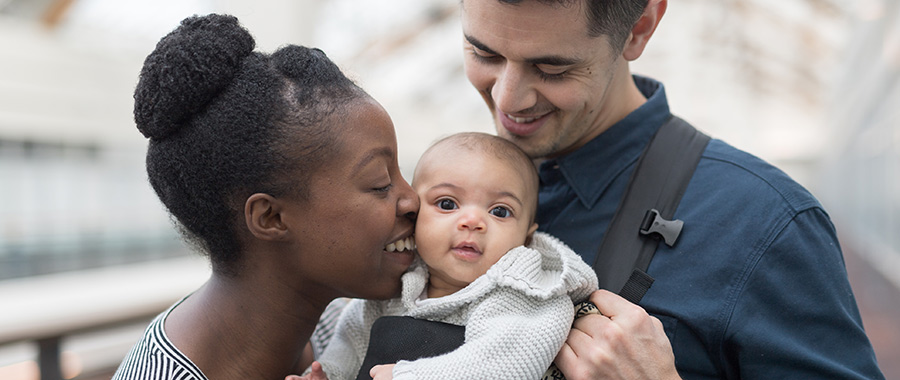In the realm of Bahá’í teachings, the metaphor of parents as “God’s Watchful Eyes for His Children” offers an intriguing lens through which to examine the complex interplay of divine oversight and parental guidance. This sentiment extends beyond mere familial duty; it embodies profound spiritual truths and responsibilities that bridge the gap between the divine and mortal realms. The implications of this metaphor resonate deeply within the framework of love, responsibility, and the sacred bond that inherently exists between parents and their offspring.
The role of parents, as described in Bahá’í teachings, is not merely to provide tangible necessities—food, shelter, education—but to nurture the intrinsic qualities embedded within the spirit of their children. This paternal and maternal vigilance emphasizes a dualistic approach: the recognition of material needs paired with an acute awareness of spiritual development. The teachings suggest that parental attentiveness should mirror God’s own watchfulness—a divine surveillance imbued with love, compassion, and guidance.
In the context of parenting, this notion of divine oversight manifests itself as an invitation for parents to become instruments of God’s purpose. Just as God watches over creation with an all-seeing eye, so too must parents guide their children with understanding and care. This analogy reinforces the idea that parenting is not merely a societal obligation, but a sacred trust that is infused with spiritual significance. Through their vigilance, parents forge pathways for their children to explore their own spiritual capacities and to recognize their innate potential.
Fundamentally, this metaphor suggests that parents are to serve as conduits of divine love. In nurturing their children, parents embody the divine attributes of God—wisdom, patience, and compassion. When children feel this relentless support, they are more likely to develop a robust sense of self, empowered by the knowledge that their existence is valued. In this light, parental engagement transcends superficial interactions. It becomes a holistic process guided by understanding and empathy, where the emotional, intellectual, and spiritual dimensions are interwoven.
Moreover, the notion of watchfulness carries with it a responsibility that is monumental in nature. It implies an active participation in the child’s life, a commitment to fostering an environment where children feel safe to express themselves and explore their identities. Such vigilance encourages open dialogue, allowing for the establishment of trust—an essential component of any parent-child relationship. Through this dynamic exchange, children learn to navigate the complexities of life with parental guidance acting as a beacon of support.
Additionally, parents as “God’s Watchful Eyes” can also be interpreted as a call to awareness. It underscores the importance of remaining cognizant of the influences that shape a child’s environment. Parents are tasked with discerning external stimuli that may affect their children’s spiritual and moral compass. This level of discernment requires not only awareness but also discernment—an understanding of the broader societal context in which their children are growing. With the omnipresence of technology and various cultural influences, parents must actively cultivate a space that promotes spiritual growth and encourages positive interaction with the outside world.
Furthermore, the effects of divine vigilance can be seen in the educational experiences provided to children. The Bahá’í teachings accentuate the pivotal role of education in developing moral character and intellectual capabilities. Parents are, therefore, called upon to engage in a holistic educational journey that not only encompasses academics but also includes moral and ethical dimensions. By instilling virtues such as honesty, kindness, and justice, parents can create an environment where children thrive, emboldened by the understanding that their worth mirrors the divine purpose bestowed upon them.
Infusing spiritual values into the fabric of daily life is another core tenet embodied in this metaphor. Parents are encouraged to lead by example, reflecting the principles of love and service through their actions. This paradigm fosters a sense of unity within the family unit, reinforcing the importance of collective spiritual growth. Such an environment cultivates a profound sense of belonging, offering children a foundational understanding of community, which is integral to their overall development.
This metaphor also invites contemplation of the dynamic relationship between free will and divine oversight. While parents endeavor to guide their children along a path that mirrors their understanding of moral and ethical frameworks, children ultimately possess the autonomy to make their own choices. This dialectic reinforces the beauty of the divine blueprint in which God has endowed humanity with free will, coupled with parental stewardship as a form of divine guidance. Parents must strike a delicate balance between offering direction and allowing their children the liberty to forge their own paths.
In conclusion, “God’s Watchful Eyes for His Children” serves as a compelling metaphor that encapsulates the multidimensional nature of parenting within the Bahá’í framework. Highlighting the intertwined roles of love, vigilance, and moral guidance, it challenges parents to engage deeply with the spiritual and emotional development of their children. The implications of this understanding extend far beyond the confines of the household; they resonate within the broader community, fostering an environment where children can flourish under the watchful, nurturing eye of their caregivers, committed to their spiritual and moral upliftment.
